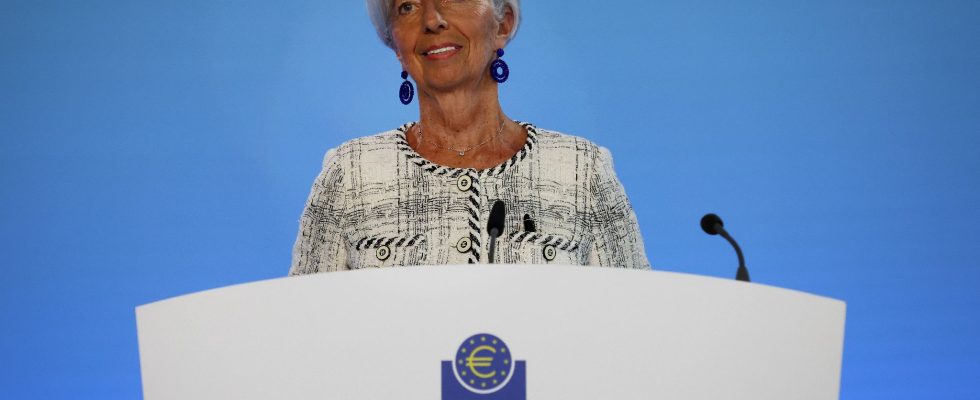This is the little music that has been rising in recent months in economist circles. What if the European Central Bank decided to abandon its 2% inflation objective? This Thursday, September 14, in Frankfurt, uncertainty is likely to be greater than ever when the Governing Council meets. Very smart will be the one who affirms without batting an eyelid that a new increase in rates will be implemented. It would then be the tenth in a row since July 2022.
It must be said that inflation is tough. In August, price increases in the euro zone stabilized at 5.3% year-on-year, as in July, after 5.5% in June. The ECB could be tempted to imitate its American counterpart, which took a first pause last June, before carrying out its eleventh rate increase in the space of a year a month later. She faces a dilemma. On the one hand, inflationary pressure remains high and continues to weigh on households. On the other hand, the scarecrow of recession in the European Union is materializing. “The risk of doing too much is to cause a recession, it is very costly both economically and humanly. The risk of not doing enough is that inflation lasts a little between 4% and 5%. Between both, the danger of recession seems greater to me,” judges Olivier Blanchard, former chief economist of the International Monetary Fund, who is campaigning to raise the inflation target to 3%.
Germany in recession in 2023?
But since the last meeting of governors, the situation has changed. The European Commission published its new economic forecasts for the year 2023 on September 11: Brussels predicts a recession in Germany for the whole year. A hard blow for Europe’s leading economic power. “The debates will be intense within the Governing Council. There is another element to take into account: the position of the President of the ECB is not at all that of Mario Draghi, his predecessor. The latter had a economic leadership. Christine Lagarde is much more sensitive to what the Germans or the Dutch may demand. This is a point of weakness to take into account when we analyze the decisions that will be taken”, underlines the economist Christian Saint-Etienne.
In the event that the ECB opts for a further increase in its rates, experts expect a turn of the screw of only 0.25 points. “The risk would be that she wants to be more royalist than the king. The slowdown in the European economy is such that it is likely to calm the desire for excessively high increases. Going further than 0.25 is risk plunging into recession”, estimates Christian Saint-Etienne.
ECB credibility at stake
The monetary institution also plays its credibility there. “If the ECB says: we are at 4%, we are going to stop at 3%, when it was aiming for 2%, that calls it into question,” considers Olivier Blanchard. For Eric Monnet, 2022 Young Economist Prize and study director at the School of Advanced Studies in Social Sciences, “the ECB especially has difficulty committing to a horizon. There is a difference between saying that the we will return to 2% inflation within 2-3 years and say that we will be able to acclimatize by 3-4%. In terms of communication, this could benefit from being clarified. The ECB is still in the “optics of catching up, because she started to react a little late. She wants to show that it is she who is tackling the problem of inflation.”
In reality, there is no theoretical basis to justify this objective set at 2%. “When it was created, the ECB was mandated by the Maastricht Treaty to ensure price stability. It then itself decided that stability was at 2% increase. There are theoretical debates for a long time to know if it is justified. This does not result from any divine rule”, explains Christian Saint-Etienne who defends a target of “2% inflation plus or minus 1”.
These balancing acts actually have a psychological impact on Europeans’ perception of prices. “Studies have shown that at 4%, consumers and businesses start to think about inflation and this changes their behavior. At 3%, they seem to think little about it, and react less to temporary variations in inflation. This simplifies the work of central banks,” explains Olivier Blanchard. It is now up to Christine Lagarde to announce the news which will never be able to satisfy everyone.
